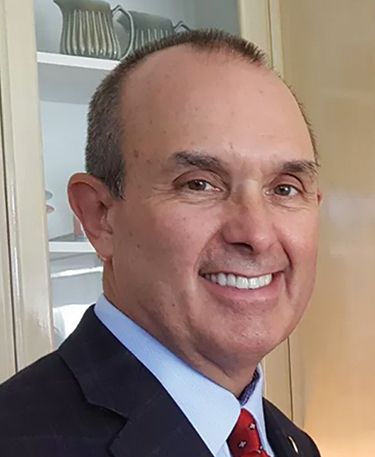
By Dave Yochum. NC Sen. Jeff Tarte attended the Executive Education program at the John F. Kennedy School of Government at Harvard University for senior government executives in July.
Tarte, the former mayor of Cornelius, landed a $13,000 scholarship to attend the $14,000 program.
The scholarship was funded by venture capitalist Charles Kahn whose plan is to recognize legislators across the country who take a bipartisan approach to governance.
There were more than 70 students in the class, but only five—legislators from various states—received the scholarship, Tarte said. Other scholarship winners include the House minority leader in New Mexico and the speaker of the House in Ohio.
The program puts a full semester of study, discussion and work into a single month. Tarte, whose wife is Dr. Nancy Tarte, represents NC Senate District 41, which stretches from Cornelius and Davidson to Matthews and Mint Hill.
Tarte’s credo: “Being respectful of people who have different points of view and have other ideologies and then collaborate to solve problems.”
His bipartisan approach got him in trouble with some of the GOP powers that be in Raleigh. When Tarte split with Gov. Pat McCrory on the I-77 toll issue, the governor quit talking to him. Of course, McCrory lost his bid for re-election this past November, and Tarte won.
Working with others—Republicans come first, no doubt—is high on Tarte’s bucket list. Indeed, he was part of the GOP super-majority that overrode Gov. Roy Cooper’s veto of the budget.
Tarte said the $23 billion state budget is “balanced, fiscally responsible…funds core services, strengthens public education, shores up savings reserves and grows North Carolina’s economy.”
Tax relief over the next two years will result in 99 percent of North Carolina “taxpayers either paying less or paying no state personal income taxes at all,” Tarte said.
“The main words I harp on now are ‘finding balance’…legislatively we need to stop bashing the other side…people have gotten focused on rhetoric instead of results,” Tarte said.
The sole criterion for the scholarship, Tarte said, was a “proven ability to cross the aisle for bipartisan support.”
Now in his third term, Tarte faces a perhaps uncertain future as the North Carolina electorate undergoes dramatic change. Senate District 41 is the fastest growing in the state, with a dramatic influx of unaffiliated voters. He expects redistricting to take place in time for the 2018 elections, and again in 2021 because “the population shift is so significant.”
In the past three years alone, there were 28,000 new voters in Senate 41.
“That’s the equivalent of all of Cornelius moving in…a whole new town in the county,” Tarte said, explaining that NC Senate districts are cut up into slices of 200,000 people.
In Mecklenburg and in Wake County there are more unaffiliated voters than Republicans and Democrats. The population influx will change the mix of voters across the state.
How it affects politics, though is unclear. Fewer unaffiliated candidates have political structures than those who are members of either of the two major parties. “An unaffiliated person has a difficult time running in a statewide race,” Tarte said, explaining that some people who will likely rise through the ranks tend to be one-issue candidates.





